Nervous SystemThe control centre of your body is your neurological system. It is controlled by your brain and governs your actions, thoughts, and reflex reactions to the environment. It plays an important role in regulating the functioning of all other body systems like the digestive system, respiratory system, excretory system, and reproductive system. Your nervous system can be harmed by injuries, diseases, poisons, and normal ageing. 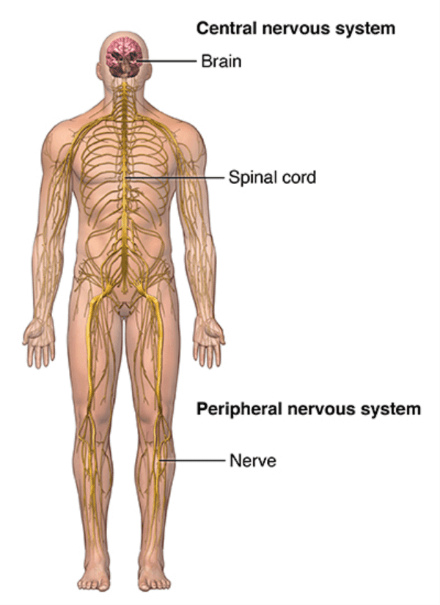 What is The Nervous System?Nearly all of your actions, thoughts, words, and emotions are controlled by your nervous system. It manages complex functions like memory, cognition, and movement. It is crucial for bodily functions like breathing, blushing, and blinking that occurs automatically. Your nervous system has an impact on many facets of your health, including:
Your body's nervous system is this intricate mechanism. It controls your body's functions and lets you absorb your surroundings. All across your body, a large network of nerves transmits and receives electrical impulses from and to other cells, glands, and muscles. These nerves take in data from your environment. The nerves then process the data and manage your reaction. Your body almost seems to have a massive information highway flowing through it. The Function of The Nervous SystemNeurons are specialized cells your nervous system utilizes to deliver impulses or messages throughout your body. These electrical impulses are sent and received by your muscles, organs, glands, skin, and brain. 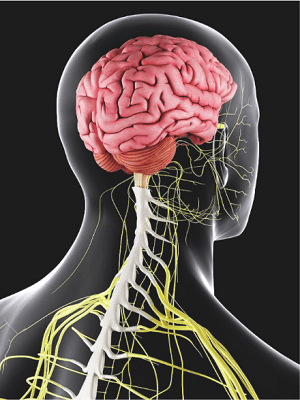 Communication allows you to move your muscles and experience sensations like pain. Information about your surroundings is taken in by your eyes, hearing, tongue, nose, and all the nerves throughout your body. Nerves then transfer that information to and from your brain. Signals sent by various neuronal types vary. All the information sensed by the body through sensory neurons is passed directly to the brain for processing the information. Your muscles are told to move by motor neurons. Other neurons manage automatic bodily functions, including breathing, shivering, a steady heartbeat, and food digestion. Components of Nervous SystemTwo major sections make up the nervous system. Each component is made up of billions of neurons or nerve cells. These unique cells teach your body how to behave by transmitting and receiving electrical impulses. The brain and spinal cord make the major component of the nervous system. The brain uses the nerves spread throughout the body to communicate with different organs. A layer of protection called myelin surrounds each neuron. Myelin protects the nerve and aids in the transmission of signals. Peripheral nervous system: Your body's many nerves that branch off from your central nervous system (CNS) make up your peripheral nervous system. Your organs, arms, legs, fingers, and toes get information from your brain and spinal cord through this system. The following are located in your peripheral nervous system: 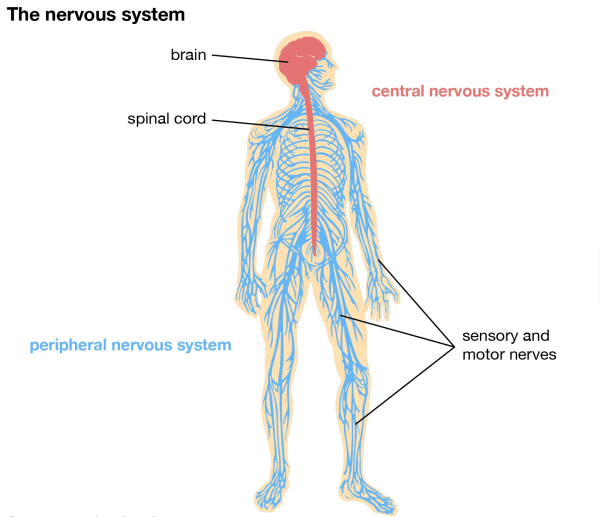
Diseases Affecting Nervous SystemNumerous diseases and ailments might have an impact on your nervous system. A damaged nerve has problems with communication. Sometimes it is so broken that it is completely incapable of sending or receiving a message. Nerve damage may result in pain, numbness, or a pins-and-needles sensation. You can find it difficult or impossible to move the affected region. Numerous factors can cause nerve injury. Among the most typical reasons for nerve injury are:
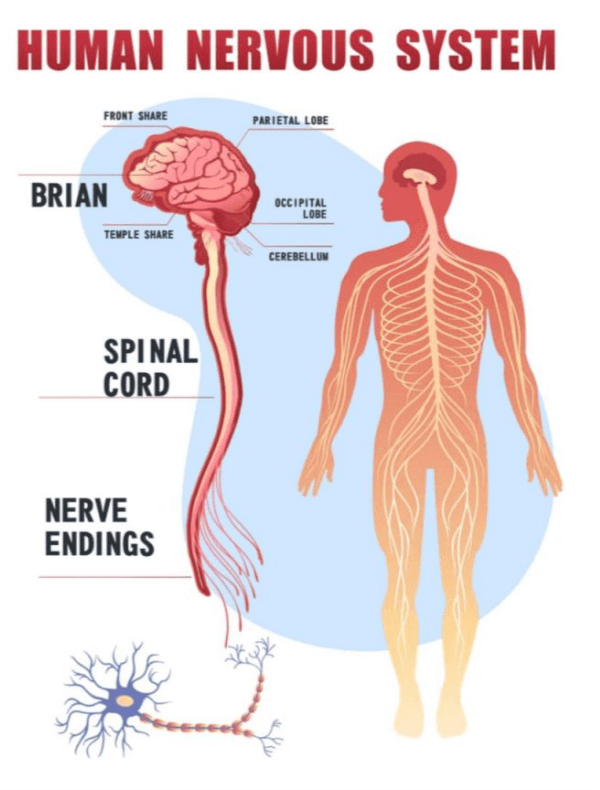 PreventionCertain factors lead to nerve injury more commonly than others. They consist of:
How Can I Maintain a Healthy Neurological System?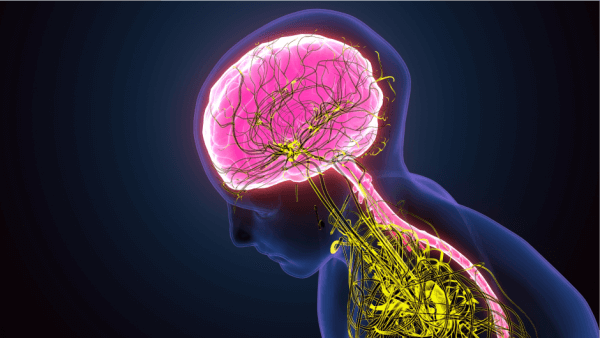 The greatest method to prevent disease-related nerve damage is to control illnesses like diabetes that can harm your nerves. The control centre for your whole body is your nervous system. To continue functioning properly, it needs attention. Visit your doctor frequently, maintain a healthy diet, abstain from narcotics, and use alcohol only sometimes. Call your doctor immediately if you experience abrupt changes in your health, such as losing coordination or detecting extreme muscular weakness. Seeing your doctor is also advised if you have:
Next TopicUrinary system |